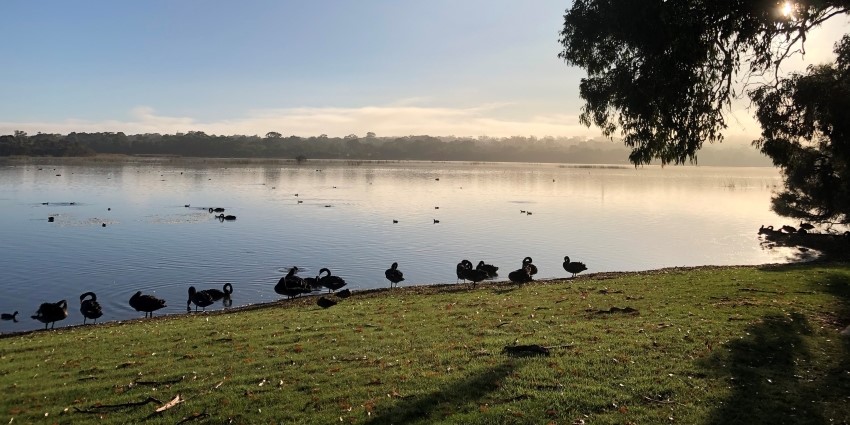Learn about the Gnangara groundwater allocation plan below.
What do I need to know?
Show moreThe Gnangara groundwater allocation plan is part of the State Government’s response to climate change.
The plan sets out how Gnangara groundwater use will be reduced over the next 10 years:
- Taking less groundwater will rebalance the groundwater system to better match less rainfall in a drier climate, ensuring healthier wetlands and vegetation and a secure water supply for Perth in the long term.
- The plan includes reductions shared across all groundwater users:
- A 27 per cent reduction (30 gigalitres per year) in 2028 to groundwater licensed to the Water Corporation for Perth’s Integrated Water Supply Scheme (drinking water).
- A 10 per cent reduction for most groundwater licensees from 2028, to give people time to adjust to the changes.
- Alignment of the sprinkler roster for garden bores and scheme users from September 2022 so that all households across Perth and Mandurah now have a two-days-per-week sprinkler roster between 1 September and 31 May each year, regardless of the water source.
- More information on reductions for different water users is in the Summary and Chapters 4 and 5 of the plan. Water used to irrigate school and hospital grounds and water used to irrigate plants or trees for commercial purposes by established nurseries and tree farms will be exceptions to reductions.
- Support packages are available to some water users to help them adjust to less groundwater use.
The plan sets groundwater level objectives to protect important groundwater-dependent ecosystems, such as wetlands and bushland areas, and outlines how we will continue to monitor water levels, water quality and ecological health against these objectives to ensure the delivery of real outcomes.
Supporting documents for the plan are also available:
- Gnangara groundwater allocation plan: Methods
- Gnangara groundwater allocation plan: Statement of response
The statement of response summarises our responses to public comments and submissions received on the Gnangara groundwater allocation plan: draft for public comment, and how we used these to modify and finalise the plan.
Why a new plan for the Gnangara groundwater system is needed
Show more- Climate change has seen Perth’s long-term average annual rainfall decline by about 15 per cent since 1975. Less rainfall means less water recharging our groundwater aquifers.
- We have been taking out more groundwater than has been recharged by rainfall – tipping the system out of balance. The more the system is out of balance, the bigger the impact on Perth’s wetlands, bushland, wildlife, and water quality and accessibility.
- Taking less groundwater will help ensure the Gnangara groundwater system is managed sustainably and that it remains a natural, low-cost water source for Perth for the long term.
- Important wetlands and native bushland will be protected and more resilient to climate change by taking the actions in the plan.
How was the plan developed?
Show moreWe developed the plan considering:
- social, economic and environmental issues identified from research and over 150 meetings, workshops and presentations with stakeholders to date
- extensive modelling and analysis, showing the level of reductions are necessary to measurably improve groundwater levels in critical areas and protect important environmental and water resource values
- issues raised in stakeholder and submissions received on the draft plan during the public comment period.
What support is there for water users to adjust to less groundwater use?
Show moreThe State Government is supporting water users to adjust to using less water:
- Horticultural water users in the Gnangara plan area that are subject to the 10 per cent reduction in abstraction are being supported through a water use efficiency grants scheme.
- Local governments in areas most impacted by the urban heat island effect are being supported to prepare for the reductions in their water entitlements.
- Householders are being supported to make their gardens more waterwise, with incentives to invest in smart irrigation technology, sprinkler system check-ups and waterwise workshops.
- Local councils are being supported to be more waterwise through a new waterwise irrigation training program for Gold-status Waterwise Councils in partnership with Water Corporation and Irrigation Australia Limited Western Australia.
- Schools, businesses, local governments and the community are also being assisted through targeted Waterwise programs.
Better water outcomes are more achievable if we work together. There are great examples of this across different industries.



